28
junioWhat's The Current Job Market For Garage Door Lock Replacement Professionals?

Garage Door Lock Replacement: A Comprehensive Guide
Garage doors are integral parts of home security and benefit. They serve to protect lorries and saved items while offering simple access to house owners. Nevertheless, like all mechanical systems, they can experience wear and tear, particularly the locking mechanisms. This guide will cover the reasons for garage door lock replacement, the types of locks readily available, a detailed replacement process, and maintenance tips to improve security and durability.
Why Replace a Garage Door Lock?
There are several engaging reasons to think about changing a garage door lock:
- Wear and Tear: Constant use can result in use of the lock mechanism, making it less effective.
- Lost Keys: Losing keys puts the safety of your home at danger, requiring a lock replacement.
- Upgraded Security: New locking technologies and systems can provide better security than older designs.
- Increased Damage Resilience: If a lock is harmed (through required entry, rust, or other issues), it might need to be changed for safety.
- Changing Family Dynamics: If you have moved into a new home or have had renters, altering the locks is advisable.
Types of Garage Door Locks
Understanding the kinds of locks available can help property owners in making a notified choice relating to replacements. The following prevail types of garage door locks:
| Type of Lock | Description |
|---|---|
| T-handle Lock | Frequently mechanical, using a t-shaped handle for easy operation. Suitable for overhead garage doors. |
| Electronic Keypad Lock | A modern choice that needs a code input for gain access to. Perfect for those who prefer keyless entries. |
| Deadbolt Lock | A robust alternative that provides additional security. May be operated by essential or a keypad. |
| Smart Lock | Enables gain access to through smartphones or smart home systems. Offers state-of-the-art security features. |
| Move Bolt Lock | An easy and cost-effective manual locking option, providing fundamental security. |
Step-by-Step Guide for Garage Door Lock Replacement
Replacing a garage door lock might appear difficult, however with the right tools and techniques, it can be a manageable DIY job. Follow the steps below:
Tools Required:
- Screwdriver (flathead and Phillips)
- Replacement lock
- Key (if needed for your new lock type)
- Lubricant (for keeping the new lock)
- Safety safety glasses
Replacement Steps:
Assess the Current Lock: Identify whether the lock is functioning or completely broken. This will notify your replacement choices.
Collect Necessary Tools: Before beginning, guarantee you have all the tools at hand.
Eliminate the Old Lock:
- Open the garage door.
- Find the screws holding the lock in location, usually visible from inside the garage.
- Unscrew the fasteners with the screwdriver and carefully take out the lock mechanism.
Prepare the New Lock:
- Follow the manufacturer's guidelines for your new lock, ensuring all parts are undamaged.
- Test the new lock mechanism to ensure it works correctly before installation.
Set Up the New Lock:
- Align the new lock in the very same position as the old one.
- Secure it in place using the screws. Tighten them adequately, however beware not to overtighten, which can damage the material.
Check the New Lock: After installation, test the lock numerous times to guarantee smooth operation. Inspect both locking and opening functions.
Apply Lubricant: To boost the function and longevity of the lock, use a little quantity of lubricant to the locking mechanism.
Keep the Lock: Set up a routine upkeep regimen for your garage door lock.
Maintenance Tips for Garage Door Locks
To guarantee the durability of your new garage door lock and keep security, consider these upkeep ideas:
- Regular Lubrication: Perform lubrication of the lock at least as soon as a year.
- Look for Rust: Inspect for indications of rust or corrosion, specifically in damp climates. Deal with any issues right away.
- Test Security Features: If you set up an electronic or smart lock, ensure that the battery is functioning and system updates are carried out.
- Clean Mechanisms: Regularly clean locks with a wet cloth and eliminate debris or dirt that might prevent proper performance.
- Think About Professional Help: For maintenance of more complex locks, such as smart locks, consider hiring a professional for evaluations.
FAQs
Q1: How often need to I change my garage door lock?A1: It is
suggested to check your garage door lock at least as soon as a year. Replace it if you see wear, rust, or if you've lost the secrets.
Q2: Can I replace my garage door lock myself?A2: Yes, most garage door locks are created for easy DIY replacement. Just follow the producer's directions thoroughly. Q3: What tools do I require for lock replacement?A3: Basic tools such
as screwdrivers (flathead and Phillips)are generally enough. Q4: How do I preserve my garage door lock?A4: Regularly lube the mechanism, recognize rust, and keep the lock
without debris for optimum performance. Q5: Are smart locks
worth the investment?A5: Smart locks offer increased security and convenience, enabling you to manage access from another location.
For many house owners, the benefits outweigh the expenses. Replacing a garage door lock is an uncomplicated process that can considerably enhance the security of your home. By comprehending the types of locks
available and sticking to a useful replacement process, property owners can ensure their garage doors stay secure. Routine maintenance of locks will extend their life and enhance performance, adding another layer of safety for your home. Whether it's a lost secret or the requirement for an upgrade, being proactive about your garage door's locking mechanism is important for assurance.


Reseñas